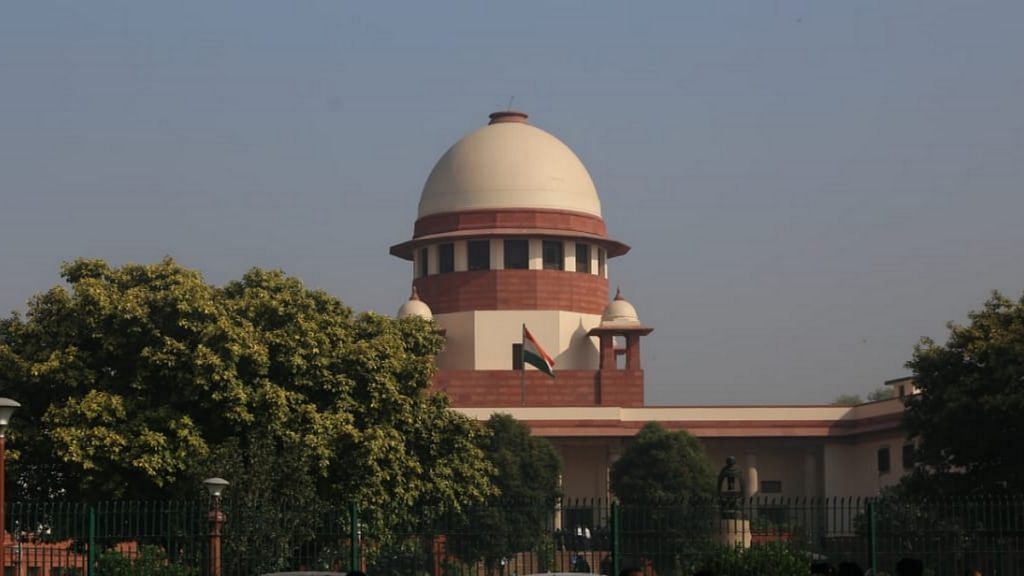New Delhi: As it referred the Maratha quota case to a Constitution bench, the Supreme Court paved the way for interpretation of an important question of law — can state legislatures declare a particular caste to be a socially and educationally backward class?
In its order Wednesday, the bench comprising Justices L. Nageswara Rao, Hemant Gupta and S. Ravindra Bhat said interpretation of Articles 338-B and 342-A, inserted by Constitution (102nd Amendment) Act 2018, raises a “substantial question of law”.
The 102nd amendment deals with the constitutional status of the National Commission for Backward Classes. Article 338B deals with the structure, duties and powers of the commission while 342-A speaks about the power of the Indian President to notify a class as Socially and Educationally Backward (SEBC) and the power of Parliament to alter the central SEBC list.
In light of these sections added two years ago, the question that has been raised in the case is whether the state legislature can declare a particular caste to be a socially and educationally backward class, or if only the Parliament can do so.
The court is dealing with a challenge to the Maharashtra State Reservation for Socially and Educationally Backward Classes Act (SEBC Act) of 2018.
The law declared Marathas to be a ‘socially and educationally backward class’ and provided them with 16 per cent quota in educational institutions, including private institutions, and in public services. The law was based on a report submitted by the Maharashtra State Backward Class Commission under the chairmanship of Justice N.G. Gaikwad.
While the Bombay High Court upheld the law in June 2019, it reduced the quantum of the quota to 12 per cent in education and 13 per cent in jobs, as recommended by the commission.
Also read: Black day for Marathas, says Maharashtra BJP after SC stays quota ruling
No ‘extraordinary situation’ to violate 50% limit
The Maharashtra law also increased the total reservation to over 50 per cent. According to the Bombay High Court judgment, the final reservation after adding the 12 and 13 per cent quota raised the total reservation in educational institutions to 64 per cent, and government jobs to 65 per cent, respectively.
This was challenged in the HC in view of the landmark Supreme Court judgment in the Indra Sawhney case, in which a nine-judge bench had held that reservations should not exceed 50 per cent of the total seats. The court had held that extreme caution has to be exercised and a special case must be made out for exceeding the 50 per cent limit.
The Justice Gaikwad commission and the Bombay HC felt that there were exceptional circumstances to breach this limit.
However, the Supreme Court now opined that it was of the “prima facie opinion that the State of Maharashtra has not shown any extraordinary situation for providing reservations to Marathas in excess of 50 per cent”.
Asserting that no caution has been exercised by the state in breaching the limit, the bench observed, “Maratha community which comprises 30 percent of the population in the State of Maharashtra cannot be compared to marginalized sections of the society living in far flung and remote areas. The State has failed to make out a special case for providing reservation in excess of 50 per cent.”
The court therefore felt it appropriate to rule that admissions to educational institutions for the academic year 2020-21 as well as appointments to public services shall be made without the quota. However, it clarified that the admissions made to postgraduate medical courses shall not be altered.
Also read: ‘There are unequals within SCs, STs’ — what Supreme Court said on quota sub-classification
